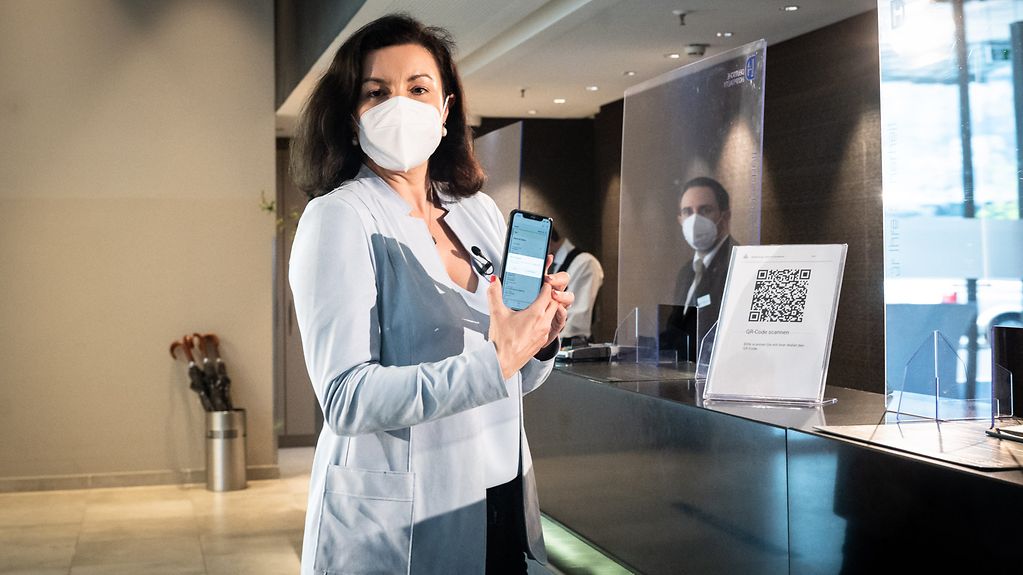Digital identity ecosystem
Business travellers can now check into about 50 hotels using a new ID Wallet. “This is the end of all the paperwork,” declared Minister of State Dorothee Bär, Federal Government Commissioner for Digitalisation, at Go-Live in Berlin.
2 min reading time

On Monday, Minister of State Dorothee Bär, Federal Government Commissioner for Digitalisation, presented the new ID Wallet for a digital check-in
Photo: Bundesregierung/Steins
By the end of August some 120 hotels are to sign up for this project, which is being implemented jointly by the Federal Government and private-sector partners. The Hotel Check-In is the first practical application in a new ecosystem that is to be developed.
Simplifying operations, avoiding the use of paper
From now on staff members of Deutsche Bahn AG, Lufthansa AG, Robert Bosch GmbH and BWI GmbH will be able to check in at participating hotels using their smartphones and a newly developed ID Wallet.
This will allow business travellers, who have been required to travel in spite of the pandemic, to avoid physical contact when they check in. It is also the first step on the way to a fully digital hotel check-in. “The lack of digital evidence is one of the most serious constraints to digitalisation at this time,” stressed Federal Government Commissioner for Digitalisation Dorothee Bär.
The state and the private sector cooperating on digitalisation
The pilot project aims to test the interplay between public- and private-sector evidence. The hotel check-in is ideally suited. Participating companies provide staff with digital evidence of the invoicing address of the company. Parallel to this, the Federal Printing Office issues evidence based on their national identity cards (basic ID). The entire process is thus digital.
Within a very short space of time the private sector and the state have together launched the digital hotel check-in using the ID Wallet and have put in place the technical and legal basis required.
You can read more in the white paper on digital identity about how an ecosystem of digital identities can help citizens use their digital persona in a self-determined and user-friendly way.
From pilot project to application in everyday life
“Over the next few months, additional applications will follow that are highly relevant in everyday life,” pointed out State Secretary Markus Richter at the launch in Berlin. The target is to add more identity documents such as driving licenses or student IDs to smartphones in addition to national identity cards. A sort of “digital filing cabinet” is to make everyday life easier for citizens, private companies, associations and public authorities.
The Chancellor launched this process in discussion with representatives of German industry in December 2020. In the next few days, Chancellor Angela Merkel will be talking to private companies about more applications.